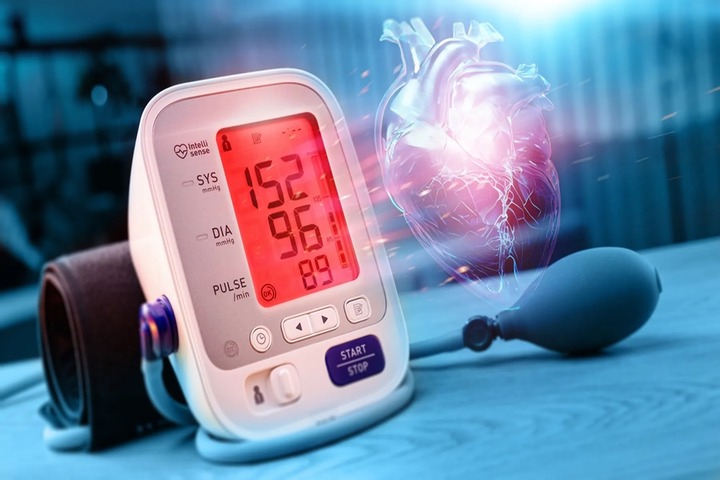High blood pressure,(HBP) also known as hypertension, is often referred to as the “silent killer” for good reason. In Nigeria, a country undergoing rapid demographic and lifestyle changes, hypertension is increasingly becoming a significant health concern among the youth population.
While traditionally associated with older adults, hypertension is now affecting Nigerian youth at an alarming rate, posing serious health risks.
As a result of the current economic situation in the country and the need to make earnings, young Nigerian youths have in a way neglected their health, which has allowed stressful situations to get to them, leading to hypertension, which not properly managed, could lead to serious health issues.
Understanding High Blood Pressure
High blood pressure occurs when the force of blood against the artery walls is consistently too high. This condition puts extra strain on the heart and blood vessels, leading to serious health complications such as heart disease, stroke, and kidney failure if left untreated. While genetics can play a role, lifestyle factors such as poor diet, lack of physical activity, stress, and obesity are significant contributors to hypertension among Nigerian youth.
Impacts Of High Blood Pressure…
The impacts of high blood pressure on Nigerian youth are multifaceted and can affect various aspects of their lives. Consider these:
Health Consequences: Hypertension increases the risk of developing life-threatening conditions at a younger age, including heart attacks and strokes. Young adults with uncontrolled hypertension are more likely to experience premature morbidity and mortality, depriving them of their full potential and contributing to the country’s overall disease burden.
Economic Burden: Managing hypertension and its complications places a significant economic burden on individuals, families, and the healthcare system. The cost of medications, hospital visits, and potential loss of productivity due to disability can exacerbate financial strain, particularly for young adults who may still be establishing their careers.
Quality Of Life: Living with hypertension can significantly diminish the quality of life for young adults. Fatigue, difficulty concentrating, and limitations on physical activity. It can impact academic and professional performance, social relationships, and overall well-being, hindering their ability to thrive and contribute positively to their families and society at large.
Solutions To Curb High Blood Pressure:
Addressing the rising prevalence of hypertension among Nigerian youth requires a comprehensive approach that targets both individual behaviours and systemic factors. Here are some effective strategies:
Promoting Healthy Lifestyles: Educating young adults on the importance of healthy eating habits, regular physical activity, stress management, and avoiding tobacco and excessive alcohol consumption is crucial for preventing and managing hypertension. Public health campaigns, school-based initiatives, and community programmes can raise awareness and encourage positive behavioural change.
Access To Healthcare: Affordable and quality healthcare services, including routine blood pressure screenings and early intervention is essential for managing hypertension among Nigerian youth.
Government has provided a subsidised health care plan — Ile Ra Eko, to enable everyone to gain quality healthcare services. Every young Nigerian youth should seize the opportunity and get affordable healthcare services to combat the silent killer- hypertension.
Regular Exercise: Regular exercise is a weapon to fight most health challenges and stay fit and healthy. So, regularly exercise to loosen tension on your muscles and arteries, keeping you relaxed and stress free.
Avoid Stress: Because of the situation of the country, one is forced to take on multiple work in order to foot bills and have something to save for the future. But, this should not be done at the expense of your health.
Where work conditions do not fit your health situation, avoid such work at all cost. Bills can only be paid conveniently when one is alive and healthy.
Regular check up: Do not forget to book regular appointments with your health practitioner to monitor your blood pressure and overall health.
Routine Drugs: If you notice a certain irregularity about your Bp, consult a practitioner to examine you and suggest drugs or procedures to normalise your BP.
In summary, high blood pressure among Nigerian youth is a pressing public health issue with far-reaching consequences. By implementing holistic approaches that encompass education, access to healthcare, and encouraging regular check ups and exercises, they can overcome the silent killer and lead a healthy life, contributing positively to their families and the society at large.



























